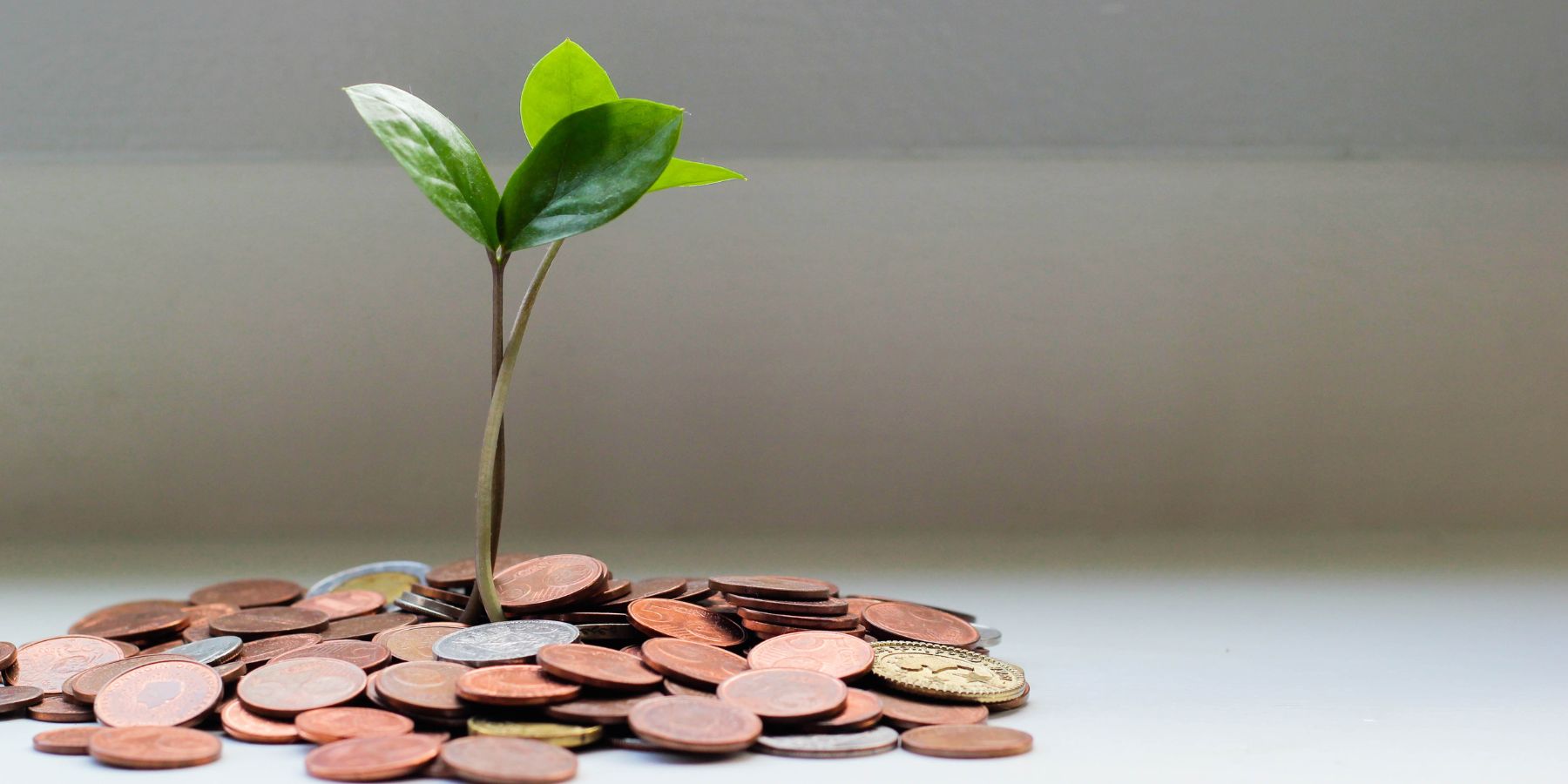
How to Support Sustainable Brands & Shop Mindfully This Year
As the clock strikes midnight and we welcome in 2024, it's time to reflect not just on our personal resolutions but on the impact our shopping habits have on the planet.
Mindful shopping is more than a trend; it's a crucial step towards a more sustainable future. Here we'll explore how you can support sustainable brands throughout the year, making choices that align with your eco-conscious values. From understanding the ethos behind the brands, to recognising the hallmarks of true sustainability. We'll guide you through the myriad of options available. Join us in embracing a year of intentional, earth-friendly purchasing decisions!
Introduction to Mindful Shopping
Understanding the Impact of Your Purchases
Every purchase we make has a ripple effect, affecting not just our homes but also the environment and communities globally. The concept of mindful shopping revolves around being aware of this impact. It involves considering the entire lifecycle of products, from the sourcing of materials to their manufacturing, distribution, and eventual disposal or recycling.
For instance, a simple choice like buying a bamboo toothbrush over a plastic one can contribute to less plastic waste. Mindful shopping means asking questions like: "Do I really need this?", "What materials is it made from?", and "How was it produced?". By understanding the ecological footprint of our purchases, we can make more responsible choices.
The Rise of Conscious Consumerism in 2024
As we embrace the new year, the trend towards conscious consumerism has become more pronounced. In 2024, this movement is not just about being environmentally friendly; it also incorporates social responsibility and ethical practices too.
Consumers are now more informed and concerned about how their buying habits affect the planet and its inhabitants. This shift is seen in the growing demand for products with transparent supply chains, ethical labour practices, and minimal environmental impact. Conscious consumerism in 2024 is about creating a positive impact through our everyday purchases. Brands are responding to this demand by adopting more sustainable practices. Consumers are re-evaluating what they buy to align with a more sustainable and equitable vision of the future.

Identifying Truly Sustainable Brands
Key Characteristics of Eco-Friendly Companies
When it comes to distinguishing genuinely sustainable brands, there are several key characteristics to look for.
Firstly, these companies often have a strong environmental policy that goes beyond just marketing claims. They invest in sustainable materials, employ energy-efficient manufacturing processes, and actively work to reduce their carbon footprint.
Transparency is another hallmark; such companies are open about their supply chains, production methods, and business practices. They often back their claims with certifications from reputable organisations. This might include the Forest Stewardship Council (FSC) for both new and recycled paper products or the Global Organic Textile Standard (GOTS) for textiles such as organic cotton.
Additionally, eco-friendly companies are often involved in community initiatives or environmental causes. They show a commitment to social and ecological causes beyond their immediate business interests.
Greenwashing: What It Is and How to Spot It
Greenwashing is where a company exaggerates or fabricates its environmental credentials. It's a growing concern in an era where eco-friendliness is a selling point. Some good tips to spot greenwashing include vague or generic claims like "green" or "eco-friendly" without specific details or evidence. Likewise, be wary of sudden green campaigns from companies without a history of sustainable practices. Particularly if these campaigns are not backed by significant changes in their operations.
Don’t be swayed by labels and buzzwords that sound eco-conscious but aren’t actually relevant to the product. It's also helpful to research the company: genuine sustainability efforts are usually part of a broader, long-term commitment rather than a one-off campaign.
A company’s commitment to sustainability is often reflected in its level of transparency and adherence to ethical practices. Truly sustainable brands are not only open about their production processes but also actively share their journey towards greater sustainability.
This might include publishing detailed sustainability reports, revealing the origins of their raw materials, and outlining the steps they're taking to reduce their environmental impact. Ethical companies also engage in third-party audits to verify their claims, providing an extra layer of trust and accountability.
Look for brands that collaborate with environmental organisations or initiatives, showing a proactive approach to addressing ecological challenges. This level of transparency not only holds the company accountable but also helps you as a consumer to make informed choices.

The Role of Fair Trade and Ethical Labour Practices
The sustainability of a product doesn’t stop at its environmental impact; it extends to the people who make it. Fair trade and ethical labour practices are crucial components of a truly sustainable brand. Such brands ensure fair wages, safe working conditions, and equitable treatment for all workers involved in their supply chain.
This often involves rigorous certification processes through organisations like Fair Trade International or the Ethical Trading Initiative. By supporting brands that adhere to these standards, consumers contribute to a more just and sustainable world. It’s about recognising that every product has a human story behind it, and choosing to support practices that respect and uplift workers globally.
Evaluating Product Life Cycles
From Raw Materials to End-of-Life: The Sustainability Journey
Evaluating the sustainability of a product means understanding its full lifecycle, from sourcing raw materials to its eventual disposal.
Sustainable products typically use raw materials that are renewable, recycled, or sourced responsibly to minimise environmental impact. The manufacturing process is another critical aspect, where factors like energy efficiency, waste reduction, and pollution control come into play.
Once the product’s been made, then distribution, packaging, and transport should also be considered, as they contribute significantly to a product's carbon footprint. Finally, the end-of-life of the product - how it is disposed of, whether it can be recycled or composted, or if it's designed for longevity - plays a pivotal role in its overall environmental impact.
Allied to this is the concept of a circular economy which aims to reduce waste. This is where resources are kept in use for as long as possible, making sure to get the maximum value from them while in use. Then, at the end of their service life, products and materials are recovered and regenerated. The principles of the circular economy are based on designing out waste and pollution, keeping products and materials in use, and regenerating natural systems.
The Significance of Being Recyclable or Biodegradable
The end-of-life of a product is really important in determining its sustainability. Products designed with recyclability in mind ensure that materials can be reused, reducing the need for new raw materials and the environmental strain of waste disposal.
Biodegradable products offer another sustainable end-of-life solution, as they break down naturally, returning to the ecosystem without leaving harmful residues. However, it's important to understand the conditions required for biodegradation, as some products may only biodegrade under specific conditions, like in industrial composting facilities.
Additionally, the concept of upcycling - repurposing a product for a new use - can extend the lifecycle of a product, further reducing its environmental impact. As consumers, choosing products with thoughtful end-of-life solutions is a significant step towards a more sustainable lifestyle.

Supporting Local and Small Businesses
The Environmental Benefits of Shopping Locally
Shopping locally is an environmentally conscious choice too. Buying from local producers means you're often reducing the carbon footprint associated with long-distance transport. Local products are also more likely to use locally sourced materials, which again cuts down on transport emissions.
Moreover, local businesses often have a smaller scale of production, which can lead to more sustainable practices compared to mass manufacturing. By choosing local, you're not just supporting the local economy but shopping with lots of environmental benefits.
Spotlight on UK-Based Eco-Friendly Brands
The UK has a fantastic scene of eco-friendly brands, many of which focus on sustainability and ethical practices. From organic skincare products made in small batches to handcrafted, upcycled home decor, there's a large and growing range of options.
You'll find plenty of great brands here at Pasoluna, many of them small businesses based in the UK.
Highlighting these brands not only supports local artisans and entrepreneurs but also promotes a culture of sustainability within the community. These brands often use traditional techniques combined with modern, eco-conscious approaches, offering unique and high-quality products with a smaller environmental footprint.
Mindful Online Shopping: Navigating the Digital Marketplace
Tips for Eco-Conscious E-Commerce
Mindful online shopping means making eco-conscious choices even when purchasing online. Opt for online retailers (like us!) who use environmentally friendly packaging, offer carbon-neutral shipping, or support recycling initiatives. Be mindful of the quantity and frequency of your orders to avoid unnecessary packaging and shipping. The first rule of Reduce, Reuse, Recycle is of course to reduce what we buy.
Reducing Your Digital Carbon Footprint
The digital world also has a carbon footprint, from the energy used to power servers to the emissions from delivering online purchases. To reduce this, do things like placing one big order rather than lots of smaller ones to minimise deliveries. Or choose digital over physical products when possible (like e-books or digital vouchers). If you’re shopping for eco friendly gifts, remember that not all gifts need to be actual things. Gifts of experiences or homemade bakes for example, are often thoughtful and valuable eco friendly alternatives.
The Power of Community in Sustainable Shopping
Joining Eco-Friendly Groups and Forums
Engaging with eco-friendly groups and forums can provide valuable support and information. These communities offer a platform to share experiences, exchange tips on sustainable living, and stay updated on eco-friendly practices. They can also be a source of motivation and inspiration, helping to maintain a sustainable lifestyle over time.
Leveraging Social Media for Conscious Consumerism
Social media is a powerful tool in promoting and discovering sustainable practices and products. Follow eco-conscious influencers, join sustainability-focused groups, and participate in online discussions about green living. Get stuck in with social media to advocate for sustainable practices and to share your own journey towards eco-friendliness. Who knows who else you might inspire in the process!
Making Sustainable Choices on a Budget
Affordable Eco-Friendly Products and Where to Find Them
Sustainable products can be affordable. Look for eco-friendly options in mainstream stores, explore second-hand shops, or buy from local markets. Many small businesses offer sustainable products at reasonable prices, and buying in bulk can also reduce costs in the long run.
Balancing Cost with Sustainability
While some sustainable products may initially seem more expensive, their long-term benefits often justify the cost. Durable, eco-friendly products tend to last longer, offering better value over time. Also, consider the broader cost implications of unsustainable products, including environmental and social costs.
Looking Ahead: Future Trends in Sustainable Shopping
Innovations in Eco-Friendly Products and Practices
The future of sustainable shopping is bright, with continuous innovations in eco-friendly products and practices. From advancements in biodegradable materials to the development of more efficient recycling techniques, the market is evolving rapidly. Stay informed about these trends to make more sustainable choices.
How Consumer Demand is Shaping Greener Markets
Consumer demand plays a crucial role in shaping greener markets. As more people request sustainable products, companies are motivated to adopt greener practices. This consumer-driven change is leading to a more sustainable market landscape, with an increasing number of companies prioritising environmental responsibility.
Your Role in a Greener Future
Embracing mindful shopping is a commitment that goes beyond a single purchase. It's about consistently making choices that align with sustainable and ethical practices. By committing to this approach year-round, you can make a significant impact on both the environment and society.
If it sometimes seems like a huge mountain to climb, remember that every sustainable choice, no matter how small, contributes to a larger impact. When combined, our individual choices can lead to significant environmental and social change. By choosing sustainability, you are part of a collective effort to create a greener and more equitable future.


Leave a comment
This site is protected by hCaptcha and the hCaptcha Privacy Policy and Terms of Service apply.